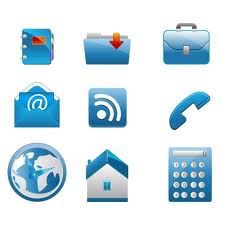5 Critical Technologies for a Small Business

 Small businesses have a lot of disadvantages versus large competitors, but one area where they can make up the differences or take advantage of tends to be technology. Unlike large corporations which saddle themselves down with bureaucracy and protocols to protect their whole organization under one standard, a small business can easily try out new tools creatively. As a result, many technologies that are available only in the last five years allow small businesses to look and feel like a bigger company while still remaining nimble. The five tools below are easy to use and a low cost to obtain for any small business.
Small businesses have a lot of disadvantages versus large competitors, but one area where they can make up the differences or take advantage of tends to be technology. Unlike large corporations which saddle themselves down with bureaucracy and protocols to protect their whole organization under one standard, a small business can easily try out new tools creatively. As a result, many technologies that are available only in the last five years allow small businesses to look and feel like a bigger company while still remaining nimble. The five tools below are easy to use and a low cost to obtain for any small business.
Tablets
While mobile devices have existed for a quite a while, the Internet-ready tablet has really only come into its own in the last five years. By instituting tablets connected to a network, a small business ranging from restaurants to farm equipment sales can easily take the power of the Internet with them on a readable screen while still operating mobile and yet everything they do can now be automated and archived. Significant transaction and statistical data can now be captured for a small business as a result.
Responsive Website Design
Along the same lines of the explosion of tablet use, traditional website design had to evolve as well. Normal websites don’t load properly or display well on small devices versus a desktop computer. As a result, new coding features allow websites to determine what type of Internet device is being used and display the appropriate screen size and visuals for that kind of device. As a result, people don’t have to wait for a small business’ website to appear on their phone or tablet. Instead, a mobile-device ready version appears and loads quickly, allowing consumers to transact easily rather than have to zoom in to see detail.
Online Backup
Gone are the days when a business had to save boxes of backup tapes and discs. Physically separated, independent storage services now exist, allowing small businesses to save and backup gigabytes of data and information. So now, no matter if an office is damaged by a flood or fire, all the business information is saved and ready to reload.
Cloud Platforms
Five years ago people still had to meet in person or by phone conference and email to share documents and information. Now, entire cloud platforms can be developed with enterprise-level software tools and segmented modules or use rooms in the system used. A small business can look and feel like a corporation to all its employees and consumers on the Internet, yet the cost is a minimal subscription fee per month to access online tools and use storage space. Instead, the up-front infrastructure cost is carried by a cloud provider business, relieving small businesses of even having to hire an IT staff person for network help.
Marketing by Video
Because Internet broadband services today are so widespread, video tools are easily available and applicable to small business marketing. Internet-viewing consumers can easily see both video-audio products as well as animated flash files without a hitch, literally bringing TV-like messaging to them for a fraction of traditional TV marketing. Small businesses can easily take advantage of these tools and then distribute the product practically for free across sharing platforms in both social media as well as video libraries supported by search engine companies. In fact, the demand for video marketing is so strong, the right storyline can go viral, creating a cult following among Internet viewers. That’s gold for marketing purposes.